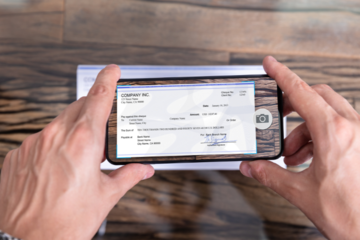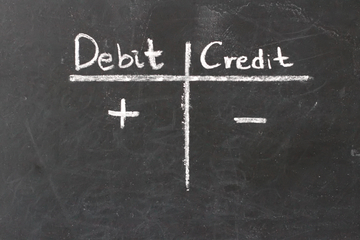If you’re never quite sure how much money you’ll make in the upcoming year, you’re not alone. Irregular incomes are impacting more American households than ever; the share of gig workers across the US increased from 27% in 2016 to 37% in 2022. And in the wake of COVID-19, the gig and freelance economy has only continued to grow.
However, just because you don’t make the same amount of money every paycheck, doesn’t mean you can’t budget for a secure lifestyle. In fact, it’s even more critical to manage your money well when you’re not sure exactly how much is coming in each month.
Sound daunting? Let’s break it down. In this article we’ll reveal how to create a stable budget even with an irregular income.
Identify Your Fixed Expenses
If your income is inconsistent, you’ll want to begin by figuring out what expenses you’ll need to pay no matter how much money you make. Rent or mortgage payments, car payments, and health insurance premiums are examples of fixed expenses, which will be approximately the same every month. When you begin thinking about your budget, write down what you know you’ll need to cover. Categories like:
This list will vary depending on your lifestyle. But to get started, start by identifying what you absolutely need.
You should also have a budget for things you want—your discretionary spending. This list might include:
These all make life more enjoyable, but they are not fixed expenses. If your income is low one month, you may choose to skip the fishing trip and pop some fish sticks in the oven instead. It’s not ideal — but it could be the difference that keeps you above water when your cash stream isn’t flowing.
Analyze the Irregularities in Your Income
It’s vital to develop a clear understanding of your income, where it comes from, and what causes it to increase or decrease. The more you can predict what might happen in any given month, the better prepared you’ll be. However, even if your income is truly a roller coaster month to month, you can still set yourself up for success.
How? By building your budget based on your lowest possible income estimate.
That’s because budgeting for your average income is risky. If you end up with a slow month, your budget gets blown. But if you plan for the worst, you’ll be prepared for anything — and even an average month will end up feeling cushy, with cash to spare!
Choose a Budget
Once you’ve calculated your fixed expenses and lowest possible income, you can make your budget. Subtract your fixed expenses from your lowest income and see what’s left. How much room is there to budget for your wants?
Remember that you should change and adjust your budget as needed. For example, an unexpected expense — like needing a car repair — might mean your budget for dining out goes down. Similarly, an unexpected commission might allow you to add a new line in the budget for entertainment. Stay flexible, and track everything.
Build an Emergency Fund
Even with all that work, having an irregular income always comes with a risk. If a low income month happens to coincide with an emergency expense, you might find yourself in a tight spot.
How do you guard against that? Build an emergency fund.
Part of your budget should include putting aside money for those dark and rainy days. Again, how much to save each month may need to stay flexible. But ideally, you should be able to cover 3-6 months of essential expenses at any given time. Keep this emergency fund in a savings or high-yield account, and try not to touch it except in real cases of emergency. The less you dip into that money, the more it will grow on its own.
Allocate Each Paycheck Accordingly
An easy way to stay on top of your budget is to allocate each paycheck for a specific expense. Be sure to assign your most consistent sources of income to your most vital fixed expenses, and don’t forget to account for one-time costs and long-term savings.
Create a spreadsheet or download a money-tracking app to record how your cash comes in and goes out. Many people find that multiple bank accounts help them stay organized as well. Consider having two checking accounts: one to pay your fixed expenses from and one for your discretionary spending. This should be on top of a savings account for those emergency funds.
With the right preparation, you can feel safe and secure in your finances no matter how much your income fluctuates month to month.
FAQs
What expenses should I prioritize when I have an irregular income?
When you have an irregular income, always prioritize your fixed expenses to make sure you have enough money to cover your baseline needs. These include housing, food, utilities, and transportation. You may also want to consider prioritizing debt payments, such as student loans or credit card debt, to avoid falling behind or incurring additional fees.
How can I save money when my income is irregular?
Even when you’re dealing with an irregular income, setting money aside for long-term savings should be a regular and fairly strict line in your monthly budget. Irregular incomes do make for financial highs and lows, so if you find you have to compromise your savings goal during a low month, be sure to set more aside during a high month. If you continue to struggle, take a hard look at your discretionary spending. Do those wants really outweigh the security of an emergency or retirement fund? Probably not.
Even with a thoughtful budget, sometimes unexpected situations come up that you’re not prepared to handle. Apply through Integra Credit for personal loan offers to fit your financial needs and help you make ends meet. Explore your options today.



